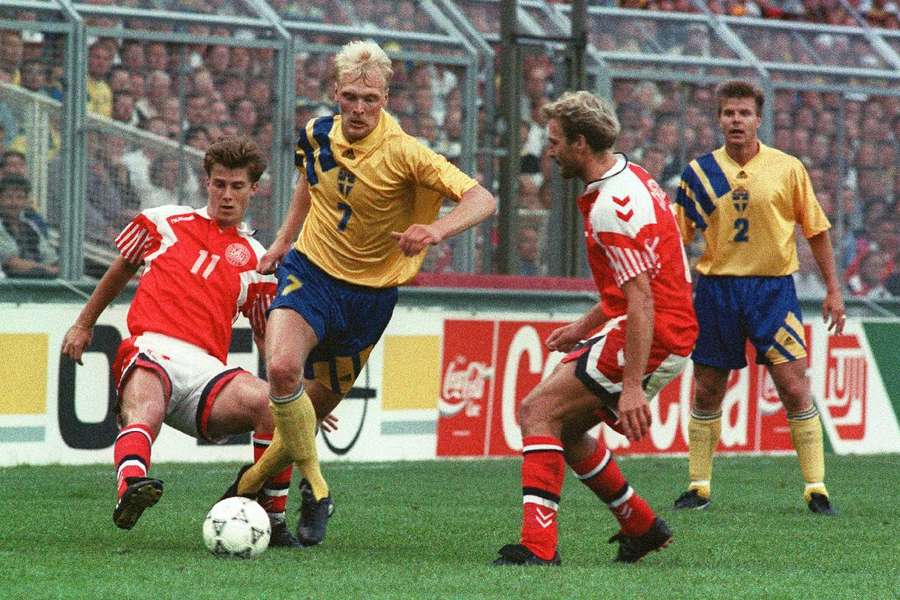The 1992 final tournament hosted by Sweden was one with an extremely strange outcome.
Denmark won EURO 1992, despite not even qualifying to play in the competition. It was granted entry less than two weeks before the tournament started, after UEFA banned Yugoslavia from participating because of the war in their country.
Yugoslavia's place was therefore awarded to the second-place finisher in the qualifying group - Denmark. At the time this decision was taken, the Yugoslavian team was already in Sweden at their training base.
An under-appreciated coach
Denmark was underprepared for the tournament, although the idea that all the players were on holiday is slightly exaggerated. A few of them took a short break, as the Danish league season ended just two weeks before the Euro opener, but Yugoslavia's suspension was somewhat predictable and the Danes were waiting for UEFA's decision.
At the start of the tournament, Richard Moller Nielsen, Denmark's coach, was not a popular figure. He had won two championships in his homeland as manager, but his defensive methods had provoked the displeasure of Michael Laudrup, considered the greatest Danish footballer of all time.
Laudrup left the national team, refusing to play under Nielsen. His brother Brian did the same, amplifying Nielsen's unpopularity across the country.
However, when Denmark's participation in Euro 1992 was confirmed, Brian returned to the team. Michael refused to return and watched the tournament on TV, being on holiday in the USA. So Denmark's greatest player missed the most important moment in Danish football history. However, he returned a year later and played in both Euro 1996 and the 1998 World Cup.
Peter Schmeichel - Denmark's hero
Brian Laudrup was spectacular, making great plays against France and especially against the Netherlands in the semi-final.
However, the real hero of the tournament was Peter Schmeichel, although his debut in the competition was not one to remember.
Hesitant in the goalless draw with England, Schmeichel was mocked by his teammate Flemming Povlsen, who said after the game that "if we have the best goalkeeper in the world, I wonder why we didn't bring him with us. "
Motivated perhaps by that comment, the Manchester United goalkeeper was one of Denmark's influential men in subsequent matches, his crucial save in a penalty shoot-out against Marco van Basten in the semi-final with the Netherlands paving the way to an unexpected final. In regulation time, the score was 2-2, with the Danes managing to win on penalties 5-4.
In the last tournament before the introduction of the rule prohibiting goalkeepers from deliberately catching deliberate passes from teammates, Denmark took full advantage, frustrating their opponents with this strategy, with Schmeichel himself later admitting that he was slightly embarrassed that Denmark won the tournament this way, describing the backpass rule as "the best rule change in football."
Explosion of joy after Germany final
Even after beating the Netherlands in the semi-final on penalties, Denmark were considered underdogs against Germany, who started strongly, giving Schmeichel a hard time in the first half.
But against the run of play, Denmark took the lead thanks to a player who surprised everyone.
John Jensen, known for his inaccuracy, scored a memorable goal from outside the box, shocking the match commentators who couldn't believe what they had just seen: "John Jensen has finally scored a goal!" was one of the memorable lines of the tournament.
But the real hero was goalkeeper Schmeichel, who gave a phenomenal performance in the face of German attacks, spectacularly stopping Stefan Reuter's shot and Jurgen Klinsmann's header, among other notable saves.
The second goal, which eventually brought the big trophy, was scored in the 78th minute by midfielder Kim Vilfort to seal the biggest upset in Euro history.
